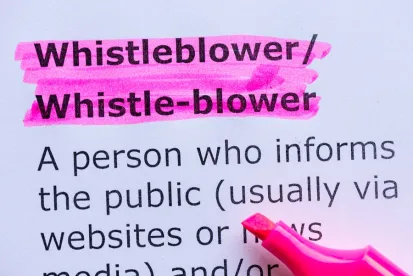On June 25, 2018, President Trump signed into law the Whistleblower Protection Coordination Act (the “Act”), permanently reinstating the Whistleblower Ombudsman Program, which was created in 2012 to encourage employees of federal government administrative agencies to report wrongdoing but expired on November 27, 2017 due to a five-year sunset clause.
The Act, which Congress passed with bipartisan support, reauthorizes a “Whistleblower Protection Coordinator” at each administrative agency’s Office of Inspector General (“OIG”) to educate agency employees about their rights to blow the whistle on suspected wrongdoing and the remedies available to them should their employers retaliate against them for doing so. Additionally, the Coordinator is tasked with ensuring that the OIG handles such whistleblower complaints promptly and thoroughly and coordinates with the U.S. Office of Special Counsel, Congress, and other agencies to address the allegations appropriately.
While the Act is specific to federal government employees and has no impact on the anti-whistleblower retaliation protections of the Sarbanes-Oxley and Dodd-Frank Wall Street Reform and Consumer Protection Acts, it is notable that the Trump administration passed the Act rather than letting the Whistleblower Ombudsman Program remain expired. This executive action suggests that the Trump administration does not currently appear to be intent upon rolling back legislative efforts to encourage employees to report suspected legal violations and to protect those that do from retaliation by their employers.
This post was written with assistance from Cynthia Joo, a 2018 Summer Associate at Epstein Becker Green.



 />i
/>i

